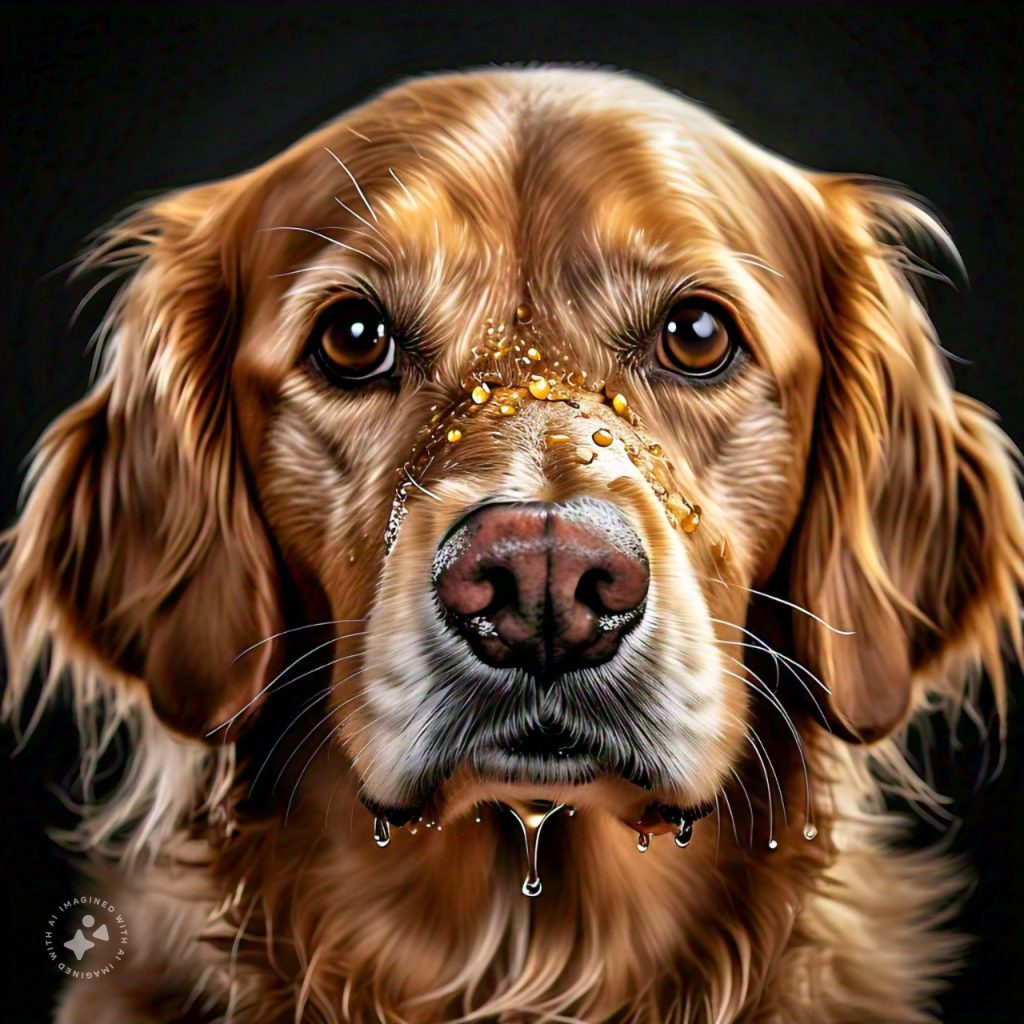A runny nose in dogs may seem like a minor issue, but it can be an indicator of a range of underlying conditions, from harmless irritants to more serious health concerns. Understanding the causes, symptoms, and treatments can help you ensure your furry friend stays healthy and comfortable. This guide will explore the key aspects of nasal discharge in dogs, providing insights into when to seek veterinary care and how to prevent it.
What Is a Runny Nose in Dogs?
A runny nose, also known as nasal discharge, occurs when fluid leaks from a dog’s nostrils. The consistency, color, and quantity of this discharge can vary, offering clues about its underlying cause. While occasional clear discharge may be normal, persistent or unusual nasal discharge warrants attention.
Common Causes of a Runny Nose in Dogs
- Allergies
- Triggers: Pollen, dust, mold, certain foods, or cleaning products.
- Symptoms: Clear nasal discharge, sneezing, itchy skin, and watery eyes.
- Management: Identifying and minimizing exposure to allergens, antihistamines prescribed by a vet.
- Infections
- Bacterial or Viral: Canine distemper, kennel cough, or adenovirus.
- Fungal: Fungal infections like aspergillosis can cause thick or bloody discharge.
- Symptoms: Thick nasal discharge, lethargy, coughing, and fever.
- Treatment: Antibiotics or antifungal medications, depending on the type of infection.
- Foreign Objects
- Dogs, especially curious breeds, may inhale small objects like grass seeds or sticks.
- Symptoms: Sudden nasal discharge (often from one nostril), sneezing, or pawing at the face.
- Solution: Immediate veterinary assistance to remove the object safely.
- Nasal Tumors
- Common in older dogs, nasal tumors can cause persistent nasal discharge.
- Symptoms: Bloody or thick discharge, facial swelling, and difficulty breathing.
- Diagnosis and Treatment: Imaging tests (X-rays or CT scans) and potential surgical or radiation therapy.
- Environmental Irritants
- Smoke, strong perfumes, or chemicals can irritate your dog’s nasal passages.
- Symptoms: Clear nasal discharge, sneezing, or coughing.
- Prevention: Avoiding exposure to harsh irritants.
- Dental Problems
- Untreated dental infections can spread to the nasal cavity.
- Symptoms: Bad breath, difficulty eating, and nasal discharge (potentially bloody or pus-like).
- Treatment: Dental cleaning, extractions, or antibiotics.
- Congenital Issues
- Some breeds are prone to structural abnormalities (e.g., brachycephalic breeds like Pugs).
- Symptoms: Chronic nasal discharge and snorting sounds.
- Management: Surgery in severe cases to improve airflow.
Symptoms to Monitor
A runny nose may present differently depending on its cause. Be vigilant for:
- Color of Discharge: Clear (allergies or irritants), yellow/green (infection), or bloody (injury or tumor).
- Consistency: Watery, thick, or mucus-like.
- Duration: Persistent versus intermittent.
- Additional Signs: Coughing, sneezing, loss of appetite, lethargy, or changes in breathing.
Diagnosing the Cause of a Runny Nose
Your veterinarian may perform the following:
- Physical Examination: Inspecting the nostrils, mouth, and face for abnormalities.
- Diagnostic Tests:
- Bloodwork to check for infections or immune responses.
- Imaging (X-rays, CT scans) for internal issues like tumors or foreign objects.
- Rhinoscopy to visually examine the nasal cavity.
- Culture tests of nasal discharge to identify bacterial or fungal infections.
Treatment Options
- Medications:
- Antibiotics or Antifungals: For bacterial or fungal infections.
- Antihistamines: To manage allergies.
- Pain Relief: If discomfort is present.
- Surgical Intervention:
- Removal of foreign objects or tumors.
- Correction of structural abnormalities.
- Supportive Care:
- Humidifiers to ease breathing.
- Regular hydration and nutritious meals.
- Specialized Treatments:
- Chemotherapy or radiation for cancer-related causes.
- Professional dental cleaning for oral infections.
Preventing Runny Noses in Dogs
- Regular Vet Checkups: Early detection of potential health issues.
- Maintain Hygiene: Keep your dog’s living area clean and allergen-free.
- Avoid Irritants: Limit exposure to smoke, harsh chemicals, and strong scents.
- Dental Care: Brush your dog’s teeth regularly and schedule professional cleanings.
- Monitor Outdoor Activities: Prevent your dog from sniffing hazardous materials or ingesting foreign objects.
When to See a Vet
Seek veterinary care immediately if:
- The nasal discharge is thick, yellow, green, or bloody.
- There are accompanying symptoms like difficulty breathing, fever, or lethargy.
- The runny nose persists for more than a few days.
- You suspect a foreign object is lodged in the nasal cavity.
Conclusion
While a runny nose in dogs is often harmless, it can signal more serious underlying conditions. By observing your pet’s symptoms, seeking prompt veterinary care, and following preventive measures, you can help your dog stay healthy and comfortable. Always consult a veterinarian for a proper diagnosis and treatment plan tailored to your dog’s needs.
By staying informed and proactive, you’ll ensure that your furry friend can enjoy a sniffle-free life.

